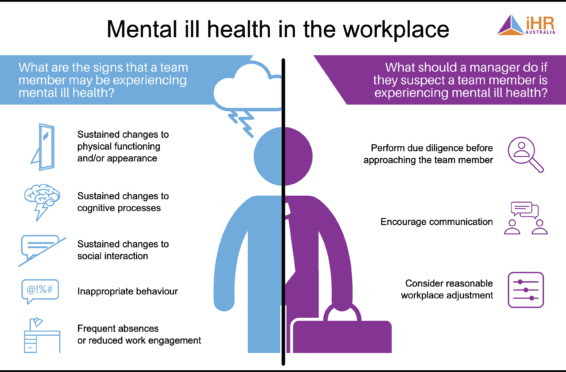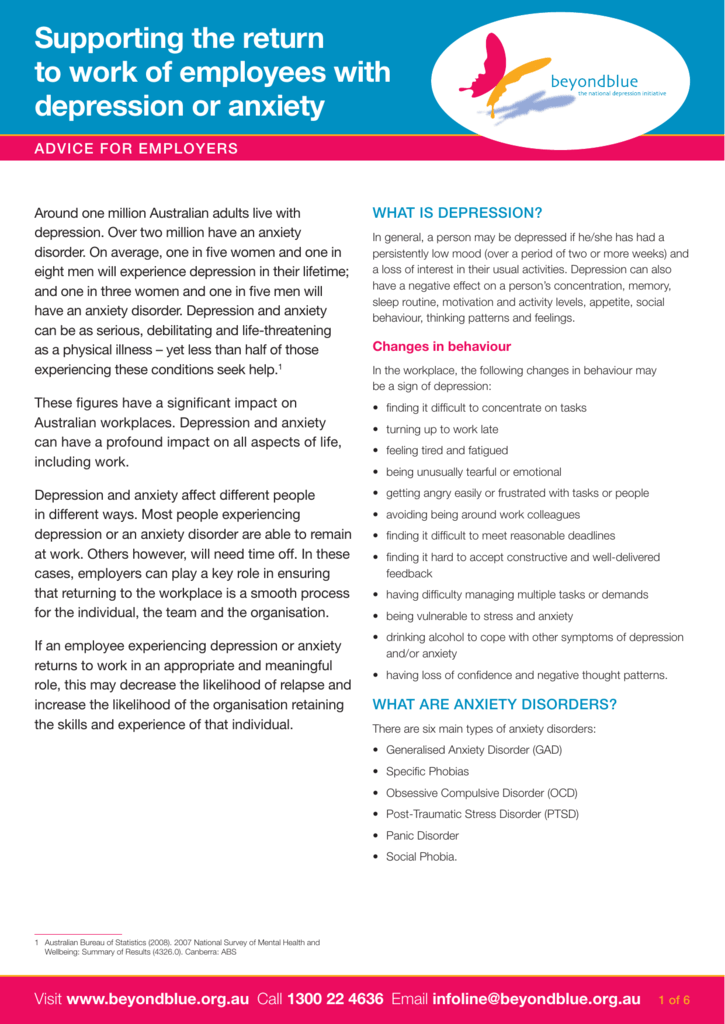

- #WORKPLACE ACCOMMODATIONS FOR DEPRESSION AND ANXIETY FULL#
- #WORKPLACE ACCOMMODATIONS FOR DEPRESSION AND ANXIETY PROFESSIONAL#

“My personal reason for not disclosing my disability is that I am a much better advocate for myself in person than my resume can be for me remotely,” Oliver continues. “I found that I received a much better response from a resume that did not list disability-related items than from one that shared information that showed I have a disability.” (Though the research wasn’t scientific, Oliver reports receiving three times as many responses for job interviews using the non-disability resume.)

He conducted his own experiment: sometimes applying to roles without identifying as disabled on the Voluntary Self-Identification of Disability Form.
#WORKPLACE ACCOMMODATIONS FOR DEPRESSION AND ANXIETY PROFESSIONAL#
Rob Oliver is a Pennsylvania professional who uses a power wheelchair because of a spinal cord injury at 21 years old. It’s a win-win for me and the employer,” she explains. Being upfront about my disability helps ensure I get what I need to be successful in my job. I have ADHD and dyslexia, which can impact my performance without accommodations. “It helps immediately establish a trusting relationship with a potential employer. She believes her disability doesn’t define her, so she has no issue marking yes on the Voluntary Self-Identification of Disability Form. Young Asian mother working and spending time with baby at home getty The Underrepresented EmployeeĬameron Emily Craddock Howe is a Virginia working mother of two. Second, Herrera believes to normalize the conversation around reasonable accommodations, recruiters ask these two questions during all their conversations: Is there anything you need to make this interview process successful for you? and Is there anything we haven’t had the chance to discuss that you’d like to mention before moving forward? “Some candidates might use the opportunity to share more professional details about themselves, and some might use the opportunity to ask for accommodations,” adds Herrera. This practice jeopardizes disability confidentiality for those who self-identify and increases the risk of hiring biases. This a critical point to share across entire organizations since in recent years, hiring managers have started asking cross-functional team members to weigh in on candidates without giving them any information about inclusive language and accessibility best practices. All these practices, in one way or another, are extremely biased and inequitable toward candidates with disabilities.” For example, after reviewing some of their processes, companies might learn that their interviewers might be assessing their candidates based on their body language, eye contact, handshakes, and the time they take to answer interview questions.
#WORKPLACE ACCOMMODATIONS FOR DEPRESSION AND ANXIETY FULL#
“Companies should review their full interviewing and hiring practices to identify all the biases embedded in their processes and systems. Herrera strongly recommends two practices for HR teams. Companies like PepsiCo, Synchrony Financial, American Express, Aon, and Staples who took action to hire people with disabilities, saw an average 14% higher retention rate in the same roles and a 33% decrease in interview-to-hire ratios, saving talent acquisition professionals valuable time while decreasing time to fill. Worse, the unconscious biases among hiring managers are costing today’s top employers. “Unfortunately, not every recruiter or hiring manager has received proper training on minimizing their own biases, especially regarding talent with disabilities.” Interestingly enough, during her weekly career coaching sessions with working professionals, Herrera has found that many neurodiverse, multicultural professionals (especially women of color and specifically Black women) prefer not sharing this information until hired. Award-winning ED&I Leader Dani Herrera is one of those people. Others believe it triggers unconscious biases. specifically Black women) prefer not sharing this information until hired. Herrera has found that many neurodiverse, multicultural professionals (especially women of color and.


 0 kommentar(er)
0 kommentar(er)
